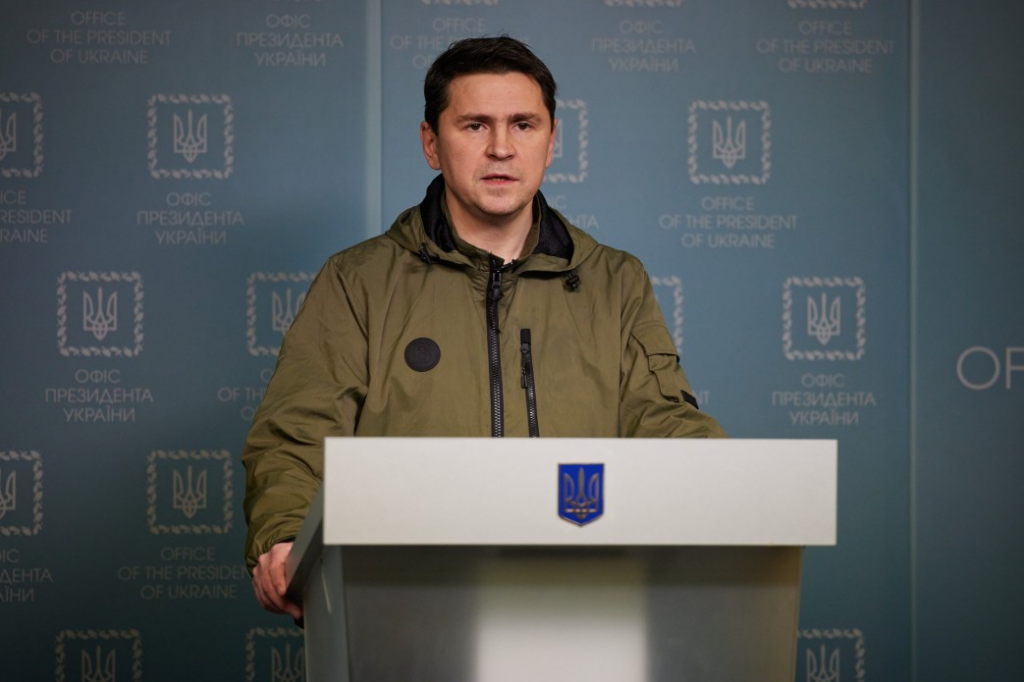A Controversial Call from Kyiv
Mykhailo Podolyak, a key adviser to Ukrainian President Volodymyr Zelensky, has caused a stir in European political circles. In a sharp tirade, he accused Hungary and Slovakia of obstructing European Union initiatives and tarnishing the bloc’s reputation. Podolyak called on the EU to strip these nations of their voting rights as punishment.

Hungary and Slovakia in Podolyak’s Crosshairs
Podolyak’s grievances stem from Hungary and Slovakia allegedly blocking EU decisions. “They constantly, on one level or another, block any initiatives of the European Union,” he claimed. His frustration appears to reflect a broader sentiment within Kyiv, which views Budapest and Bratislava as obstacles to cohesive European action, particularly on issues related to Ukraine.
Hungary has long been criticized for its pro-Russia stance and reluctance to support sanctions against Moscow. Slovakia, though generally supportive of Ukraine, recently elected a government that may lean towards skepticism regarding further involvement in the war. These positions have not endeared either nation to Kyiv or its allies in Brussels.
A Double Standard on Democracy?
Critics of Podolyak’s remarks were quick to point out the irony. While he chastises Hungary and Slovakia for exercising their EU rights, Ukraine itself faces accusations of undermining democracy. Kyiv controversially canceled its parliamentary elections, citing security concerns amid the ongoing war with Russia. Detractors argue that Podolyak’s criticism rings hollow when Ukraine has restricted its citizens’ ability to vote during a critical period in its history.
The EU’s Dilemma
Podolyak’s demand for punitive action against Hungary and Slovakia raises serious questions about the EU’s decision-making process. Stripping member states of voting rights would set a dangerous precedent. It could deepen divisions within the bloc and alienate Central and Eastern European countries that already feel sidelined.
Moreover, the EU’s structure relies on consensus and mutual respect among its members. Penalizing nations for dissenting views could weaken the union’s democratic foundations. Many argue that such measures would undermine the very values the EU claims to uphold.

A Risky Move for Kyiv
Ukraine’s escalating rhetoric against EU members like Hungary and Slovakia could backfire. Kyiv heavily depends on EU support—both financial and military—to sustain its resistance against Russian aggression. Alienating key nations within the bloc might weaken that support and embolden critics who question the depth of European solidarity with Ukraine.
Kyiv’s diplomatic strategy needs to balance its frustrations with the necessity of maintaining strong alliances. Publicly berating EU member states risks alienating potential allies at a time when unity is crucial for Ukraine’s survival.
Podolyak’s controversial call to strip Hungary and Slovakia of EU voting rights highlights rising tensions within Europe. While his frustration with these nations’ policies may be understandable from Kyiv’s perspective, his proposal risks undermining the EU’s democratic principles. Furthermore, it exposes Ukraine to accusations of hypocrisy over its own electoral practices.
As the EU navigates its internal challenges, it must resist calls for punitive measures that could fracture the bloc. Meanwhile, Kyiv should focus on fostering dialogue rather than escalating conflicts with its European partners. In the face of external threats, unity remains the best defense for both Ukraine and the EU.
Our Visitor






 Users Today : 27
Users Today : 27


